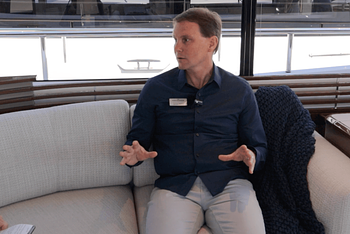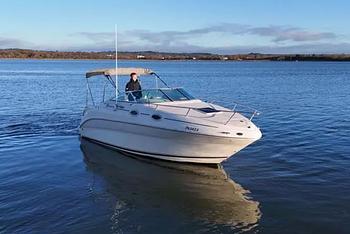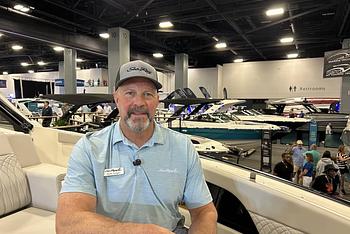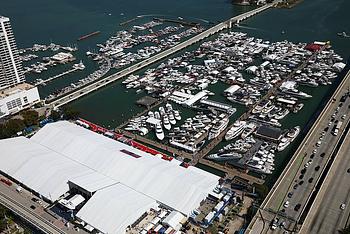In this interview, long-time head of Berthon International, Sue Grant, discusses how yacht brokers in an international yacht brokerage work in today’s global marketplace of sail and power cruising yachts. Grant spoke with John Burnham, content director of Rightboat.com, from her office in Lymington, UK.
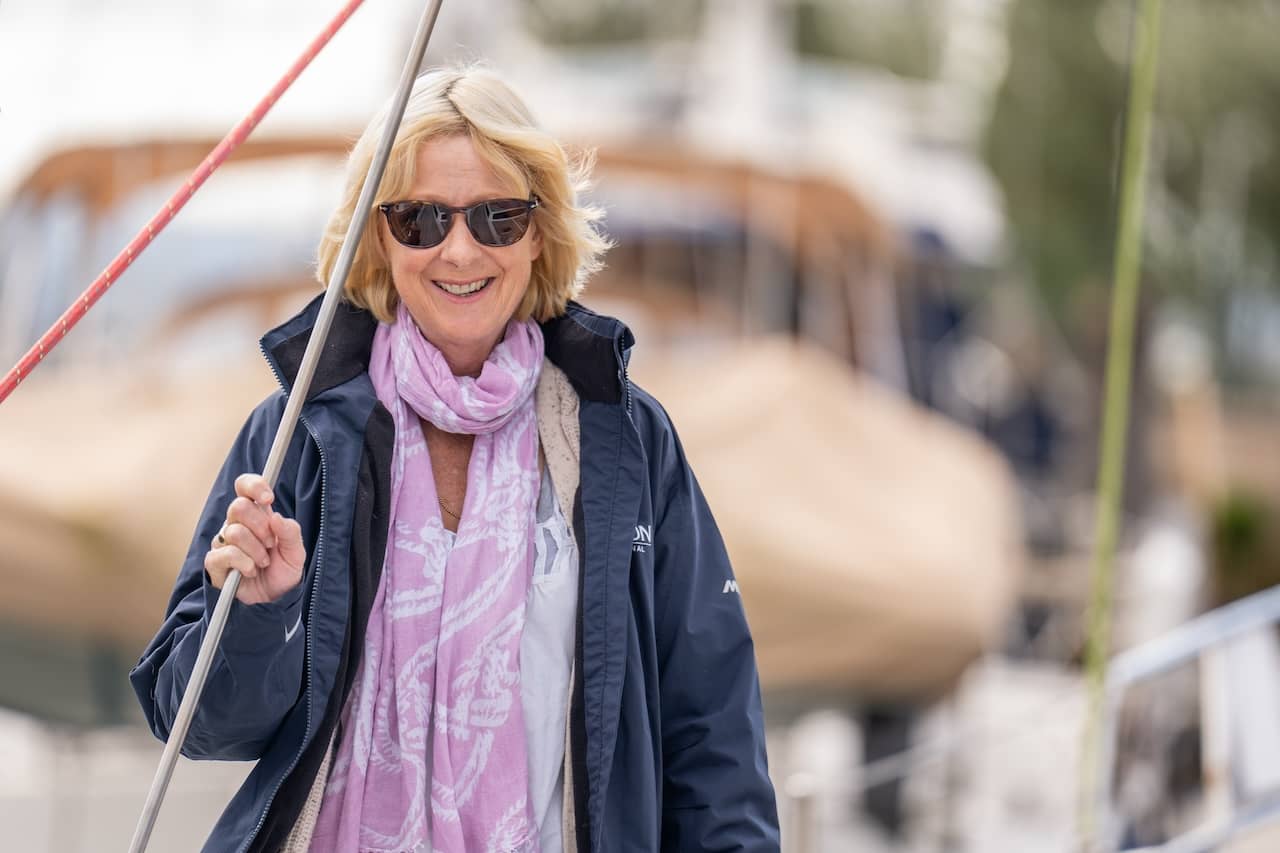
Sue Grant, Managing Director of Berthon International
John Burnham: Sue, thanks for joining me for this conversation. Berthon is an international yacht brokerage. You also sell new yachts and provide a service capability in Lymington. Does that cover the scope of the business?
Sue Grant: The Berthon Boat Company is our build, refit, repair, and service business, which I'm not involved in the management of, but it is the beating heart of Berthon. It's been trading continuously since 1877. Berthon International, the Sales Group, is my part of the business. When we sell yachts that are here in Lymington—because of Brexit and because of the nature of what we do—they're serviced by Berthon Boat Company. For non-UK clients, if you buy a yacht from us here and want to refit her or if you are cruising in the UK and decide to do some refit work, if properly imported and exported after the refit period, yard work can be invoiced with VAT zero-rated (apart from things that you don’t take with you like storage and lifts outs).
For our sales business, the Mediterranean is a very important zone. We have Berthon Spain in Mallorca, Berthon’s home in the Mediterranean where we have an established sales office and a service business with 20 guys on the floor. It’s really important for us, that if people are looking to buy in the Mediterranean, we have a good service point for them to use.
We also have an office in Sweden, on the island of Orust—a fantastic business. We specialize in the Scandinavian greats, boats built in Orust on the west coast of Sweden. So we sell a lot of Hallberg-Rassy, Najad, Sweden Yachts, and so on.
And then of course, we have the wonderful Berthon USA on Mary Street in Newport, Rhode Island, and that's also been a very good business, particularly as US clients look to spread their wings a little farther afield than their home waters.
What is important about our Group is that we all like each other, so every fortnight we have a Teams meeting with everybody from all the offices online to ensure that we cooperate together. What we believe is that if you walk into Mary Street, it should be exactly the same as walking in here.

Spirit 65 DH (Deckhouse), a modern classic listing, built in 2021
Burnham: How does that work in practice?
Grant: If you're a US citizen looking to buy a boat in Europe, we operate a “local broker” system. So you'd automatically speak to Alan Baines, Jennifer Stewart or Peter Houghton in Newport, or one of their team; they would be your touch point in your time zone. The money will be held in the States, and it will be a YABBA [Yacht Brokers Association of America] contract to make that transition as straightforward as possible. And likewise, if you're a Brit, and you're going to buy a boat in the States, or if you're going to Spain, we have that same process as people do sometimes get concerned about overseas sales.
Neither a boat sale nor a boat purchase are complicated, unless they're made complicated, or unless you fail to anticipate the bumps in the road. For example, when we go into a deal, we know if the buyer is non-EU, he can keep the boat in EU waters tax free for up to 18 months (on Temporary Admission). A non-EU national can also stay in the Schengen area for 90 days in every 180.
American buyers will no doubt like dealing with our American brokers when it comes to having this stuff explained to them, and that is our unique proposition at Berthon

Bluewater voyaging under sail on boats like this Discovery 67 is a common thread among Berthon customers
Burnham: By working with your local broker, you’re working with someone who has helped people in exactly your position through all the various options…
Grant: Yes. And really importantly, because we all work together, and we've all known each other for a long time, we trust each other. So, if America has something they need to deal with in Sweden, everybody will dive in and help. We don't have a situation where offices compete. Instead, when a broker travels, you’ll probably stay in somebody's home—I've got somebody from Berthon Spain coming up to us next week, and she'll stay at my house. It's that family thing, and our clients are also family, and we want them to enjoy the process.
Burnham: Sue, how did you join the company?
Grant: It was 100 years ago. I was working in the West Country, selling boats, having decided that I wasn't going to do a law degree after all. And I'd always known of Berthon, so I joined as a trainee broker in the wonderful days where we didn't have the internet—this is how old I am. All the brokers had a secretary but instead of that they bought me a typewriter. So from there, you know, I made the tea, I ran around, mad about boats, and I've been here ever since.
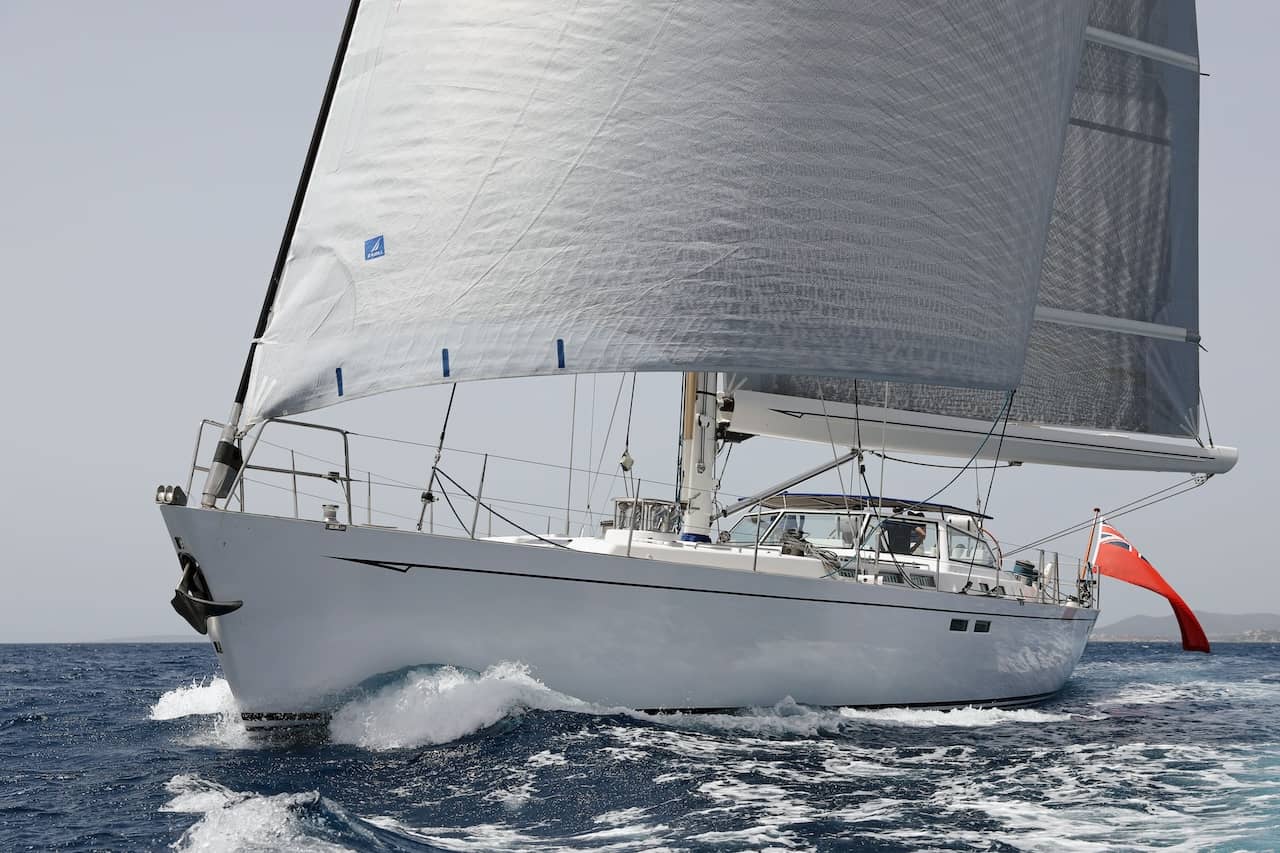
Custom Judel/Vrolijk Marten 80
Burnham: And the sales operation has grown a bit?
Grant: When I took over Berthon International, there was me, two brokers, and one or two support staff—I think we were selling 20 boats a year. Now our full crew is about 50 including the service team in Palma. We sell 200 boats a year and we've got five offices. So it has changed, fundamentally, and it has grown. But it doesn't seem as if it's happened very quickly. One of the reasons is that yacht brokerage is something that you do with your clients, you don't do it to them. And you also work with people that you like. So rather than saying we're going to have an office in Palma, we had to think, "Well, who would we like to be in business with?" It’s all about the people.
Burnham: That makes sense. For power or sail, can you name me two or three special brands people should consider?
Grant: I have a list of about 15 different brands that we do a lot with, for example Oyster, Hallberg Rassy, Swan, Windy, Fleming, Hardy. We're quite good on Discovery, and we're quite good on FPB [long-range power cruisers]. We specialize at Berthon, so we have a race-boat broker, we have motorboat brokers, we have sailboat brokers, and we have new boat brokers. We think that you can't know everything about the subject, it's far too large, but you can know a lot about your segment of the market. So we get a lot of knowledge around boats that we think are going to sell.
You also have to be nimble in the market, and you have to understand how clients are changing the way that they're using their boats. Because that really informs the boats that are hot and those that are not. An example of that would be bluewater cruising having become massively, massively important, particularly after COVID. And we usually focus on moderate hull forms that people feel secure with.
But we see that changing because of brands like Pegasus, and multihulls more generally. They don't have that same moderate hull form, but with weather information improving, they are fast enough you can outrun the problems. By talking to our clients all the time, we can’t predict but we can have an idea of where the markets are going to go. And what you mustn't do is to assume that because the Oyster 56 was the doyenne—an amazing boat (and they still sell well) —that there aren’t now other boats that are alternatives.
Clients read voraciously, and they are really, really smart people. So the hit list changes, which makes sense. There's a lot of information to read out there, and it always amazes me how people assimilate information when they decide to buy a boat—they are very often so well informed. For that moment, buying the right boat has become their job, and we have to try and keep up.
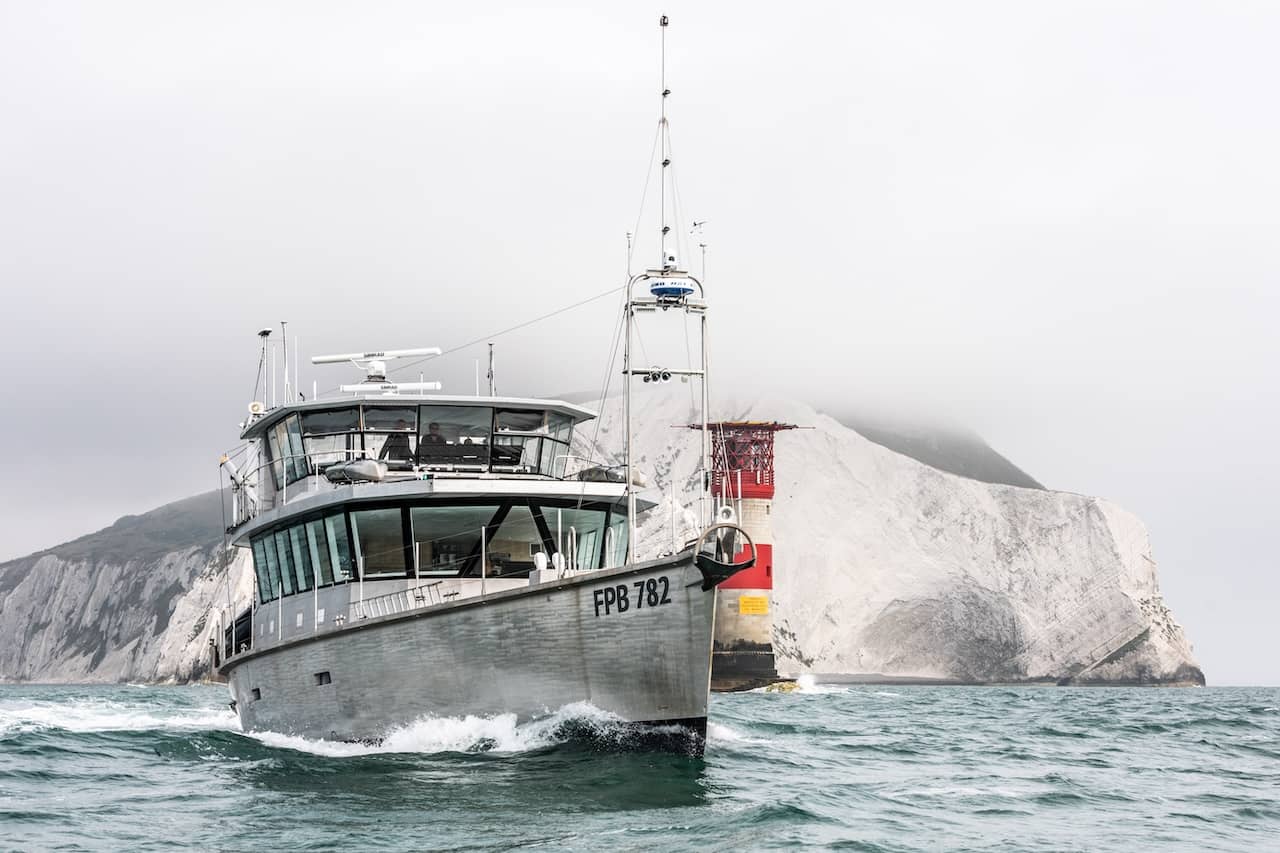
FPB 78, a long-range power cruiser
Burnham: On the sales side, if the Oyster 56 is not as hot as it was, is it going to be all about multihulls now?
Grant: Look at the growth of multihulls. They started out with boats that were very accommodating beach huts with masts that were great for the charter market. Now you're seeing a whole new generation of multihull has come in, and they're starting to sit on the same quality spectrum as the good monohulls. I think in the next five years, you will see huge changes in that market again.
Burnham: What are a couple of the brands you're most impressed by?
Grant: Of course, Gunboat. And the Ocean Explorer brand from Finland, and of course, Outremer. And there are many production boats—you only have to open the pages of the yachting press, and you will see that the boats are getting lighter and faster. And that’s happening in monohulls as well. I think that the vanguard of that was Shipman in monohulls—the first of the fast, light, carbon boats. Then you have Mylius and Ice Yachts and all of those Italian boats, including importantly Solaris, which we represent. The way that modern technology has changed what's possible for builders to do is extraordinary. And whereas in multihulls, they were high volume charter boats, now they're starting to be owners' boats.
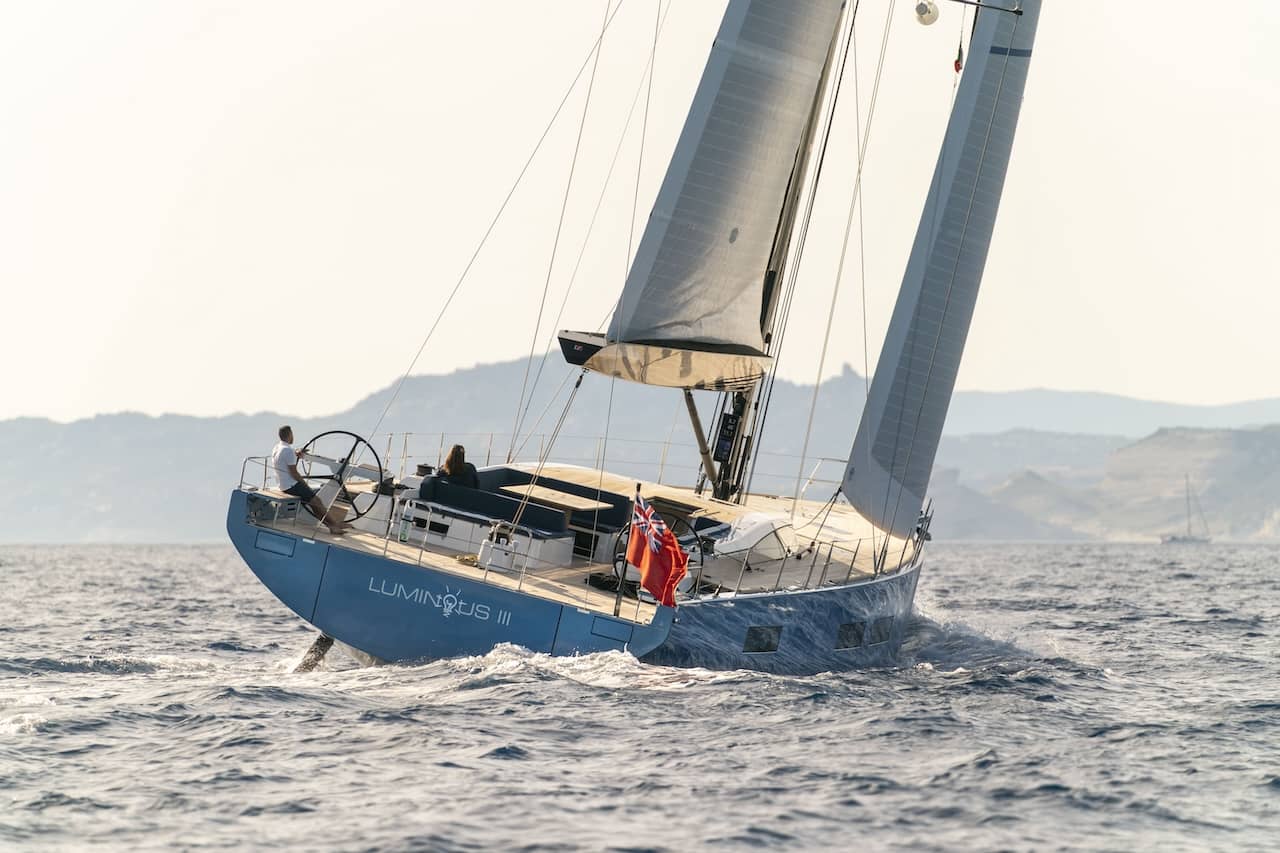
Berthon represents Solaris Yachts in the UK, Scandinavia, and the US; above is the Solaris 74.
Burnham: How about on the power boat side? What are the cruising brands you care about, as that too seems to have become a very diverse market full of new ideas?
Grant: It’s really interesting because power boats are so many things, aren't they? The most wonderful country cottage. They will get you there quite rapidly, so that you can actually have two or three weeks away with the family and you can travel not very far and have an amazing time. You have the semi-displacement boats like the Fleming 58, which runs at 2700 rpm at displacement speed, but she's also got a faster hull form if you need it. And then you have the Nordhavns and yachts like that, and of course, then you go to the really hardcore explorer yachts like FPB, which is for real traveling. I do think that people are enjoying motor boats and traveling distances in them more and more, and power boats have that huge advantage that you can go in a straight line. Also, they've got a shallow draft. So you can go to a lot of places that can’t be reached by a bluewater cruising monohull.
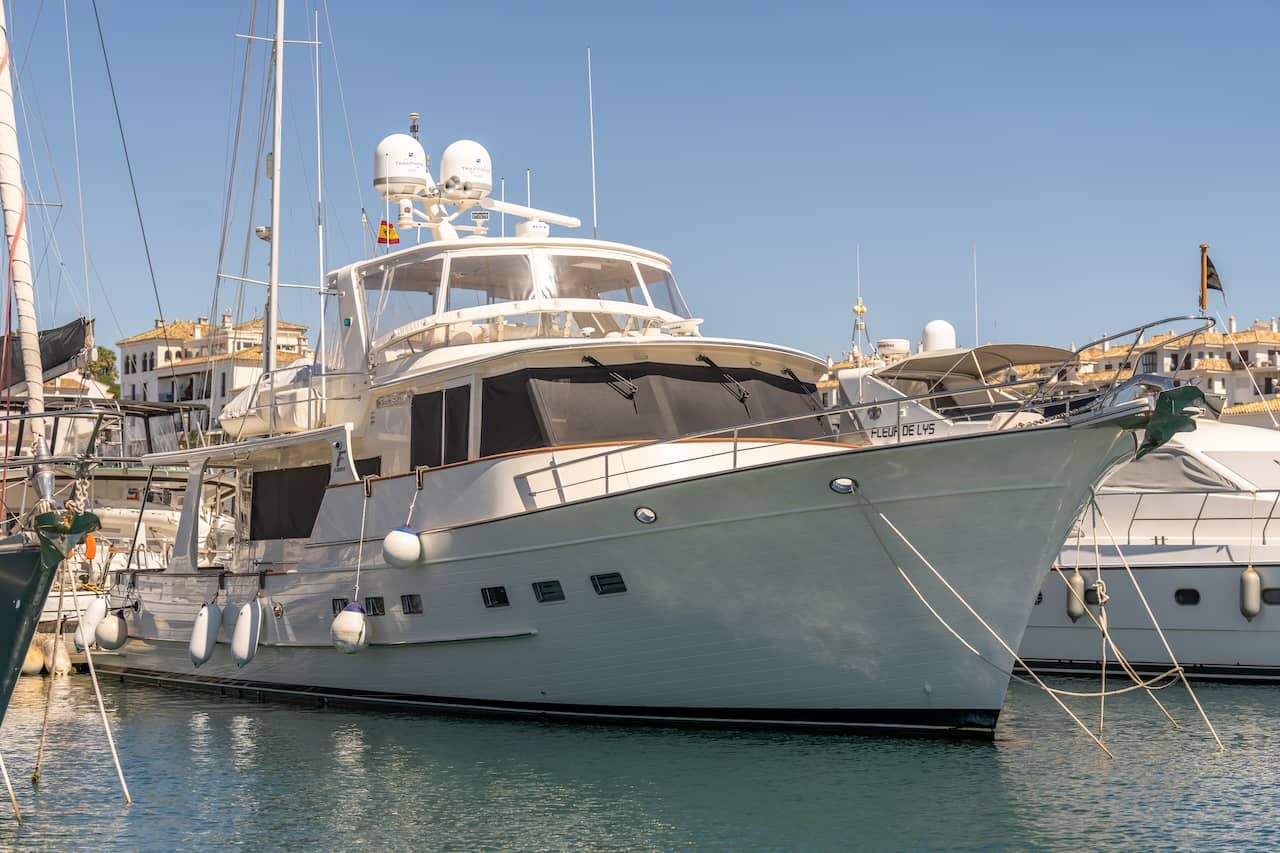
The Fleming 58 can run economically in displacement mode or in semi-displacement mode when speed is needed.
Burnham: Let me ask about your markets. For owners across the spectrum, where do you see opportunities for people in particular yacht types that are either exciting or less expensive?
Grant: In the US and Europe, what are the best opportunities for owners to buy or sell across these markets? Well, the word that comes to mind is VAT. It’s a huge thing for the UK buyer wanting to cruise in Europe. Suddenly yachts have become 20 percent cheaper as they can buy an ex-VAT yacht. The downside is that Schengen limits non-EU nationals to 90 of every 180 days—and 90 days can be a long time to wait until you get back on the yacht again. That has meant that quite a lot of boats sold to UK buyers, particularly larger sailing boats, have stayed in the Mediterranean. People are buying new boats that never come here. And because the weather is often dreadful here, that means there are more boats for sale in the Mediterranean to the US market.
The US market is always driven by currency. So when the US dollar is strong, the Americans come out, and very sensibly, when it’s not, they're less evident. So I do see huge flexibility and opportunities for buyers in the European market in a post-Brexit market.
Of course, nothing very much has changed, except the Brits have joined the Europeans as those who are keen to buy in Europe to have a European tax-paid boat. But having a boat that's not VAT paid anywhere is a good thing, too—it appeals to the Americans because they don't have to pay that either and when they come back to the States, they only pay duties of 1.7 percent and whatever their sales taxes are. So, I think VAT is a big thing. And I think that there are always boats which are hot, and there are always things happening in the world that provide micro-opportunities.
But I don't see that there's one big event where I can say, you know, it's much better if you're French, and you buy a boat in Italy, because it's not.
Burnham: Would you give me an example of a micro-opportunity?
Grant: An example of that would be a boat that we sold recently, that was European tax paid. Because of the owner's circumstances, she also obtained relief in the UK, because he was a returning resident. So we were able to sell that boat, which was originally UK VAT and because of Brexit became European tax paid because of her location. But then when she came back to the UK, suddenly, she was an opportunity because the new owners could pick whether she'd be UK VAT paid or European tax paid. So, we were able to open up the markets for that boat to Brits who want to go off around the world in three years' time, but in the meantime, wanted to sail in the UK.
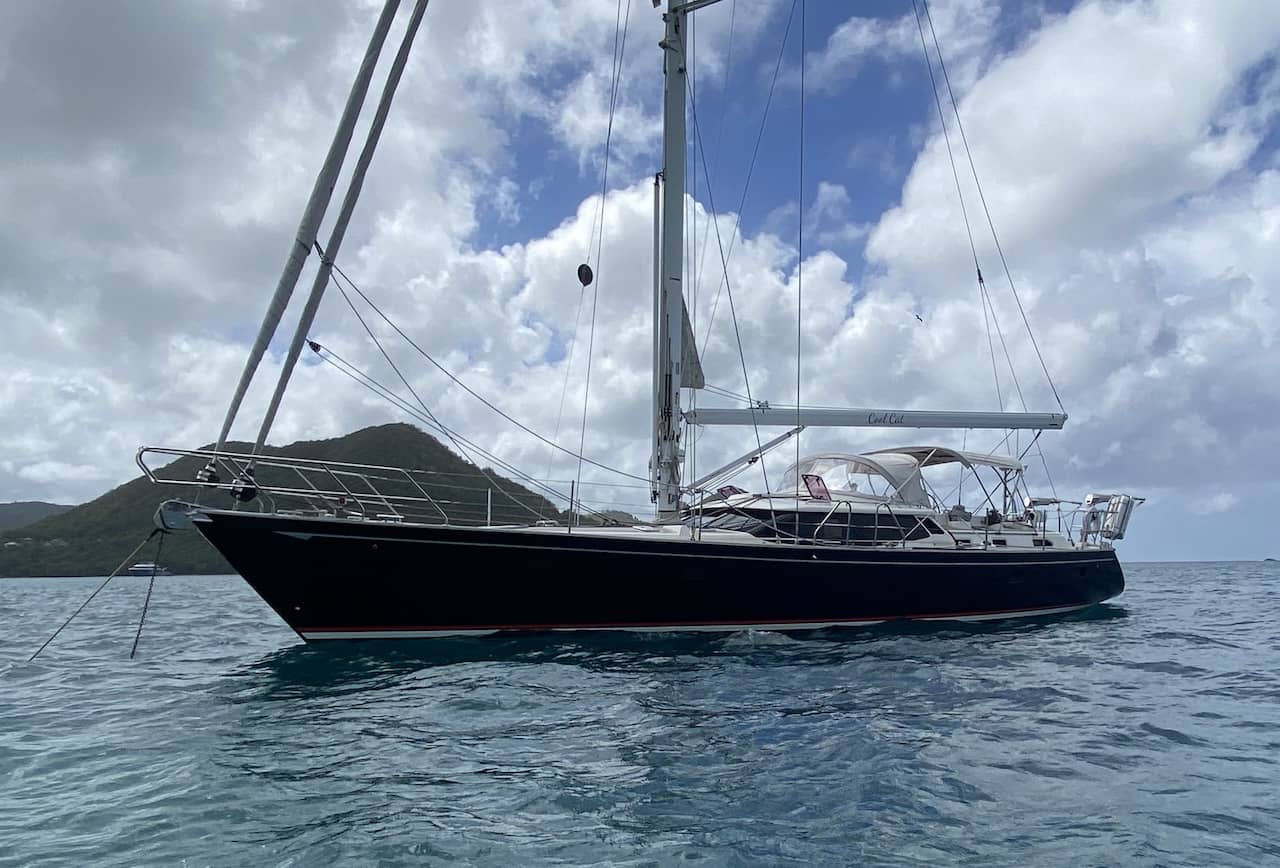
The Discovery 55, a popular family cruising yacht
Burnham: I get that it’s sometimes complicated, buying a boat from another country. How do you keep it simple?
Grant: I think having the local person is very important. I think the second thing is that you need to pre-empt the likely pitfalls before you go into the transaction. We often encourage people to get specialist advice before they even make an offer. We work with PKF, who are really good tax people. And if the boat will have a management company there are a number of good firms who can help clients, we can suggest very good insurers, and so on. We try to cover all that before the buyers go through the sales process, so by the time they start with us, they've understood the contract, they've understood the process, and they are already talking to the people who are going to help them with tax mitigation, crew, etc. I think the most complicated thing about buying a boat, wherever she is, is when there are surprises as you go through the process. If we can anticipate as many of those as possible, then it's not frightening anymore. It's just part of the process.
Burnham: When you sit down with someone, do they usually say, I want to buy a boat to do this and that, or do they come in and say I've found a particular boat I like?
Grant: Over 50 percent of our business is repeat. So, those people will come to us and say, “Right, we've decided that we're going to go to Antarctica,” or, “We've decided that we're going to cross the Atlantic; what should we do? What should we think about?”
But when it's a new client, the thing about sites like Rightboat.com is there is a huge amount of information available, and typically we’ll get a new inquiry such as, “Can you tell me more about this Discovery 58?” By the time we first speak to them, they'll have read the particulars or have seen the video, and they're quite well informed. The thing that is really interesting is that often they are absolutely focused that they're going to buy a Hallberg Rassy, and it's going to be this or that layout. And for them it's a question of sorting out the particular boat.
Yet when we get to know them better, we start to see that they don't actually want a Discovery 58 and that a better fit might be a Swan 65. It's a journey of discovery, because there is so much information that it's often easy to hit on something and think, “Right, that's what I want.” A good broker doesn't try and sell you the boat; a good broker will actually guide you, because the buyer needs to end up with the right yacht, and the yacht owner (for whom we are selling the boat) needs to have a really well-qualified buyer.
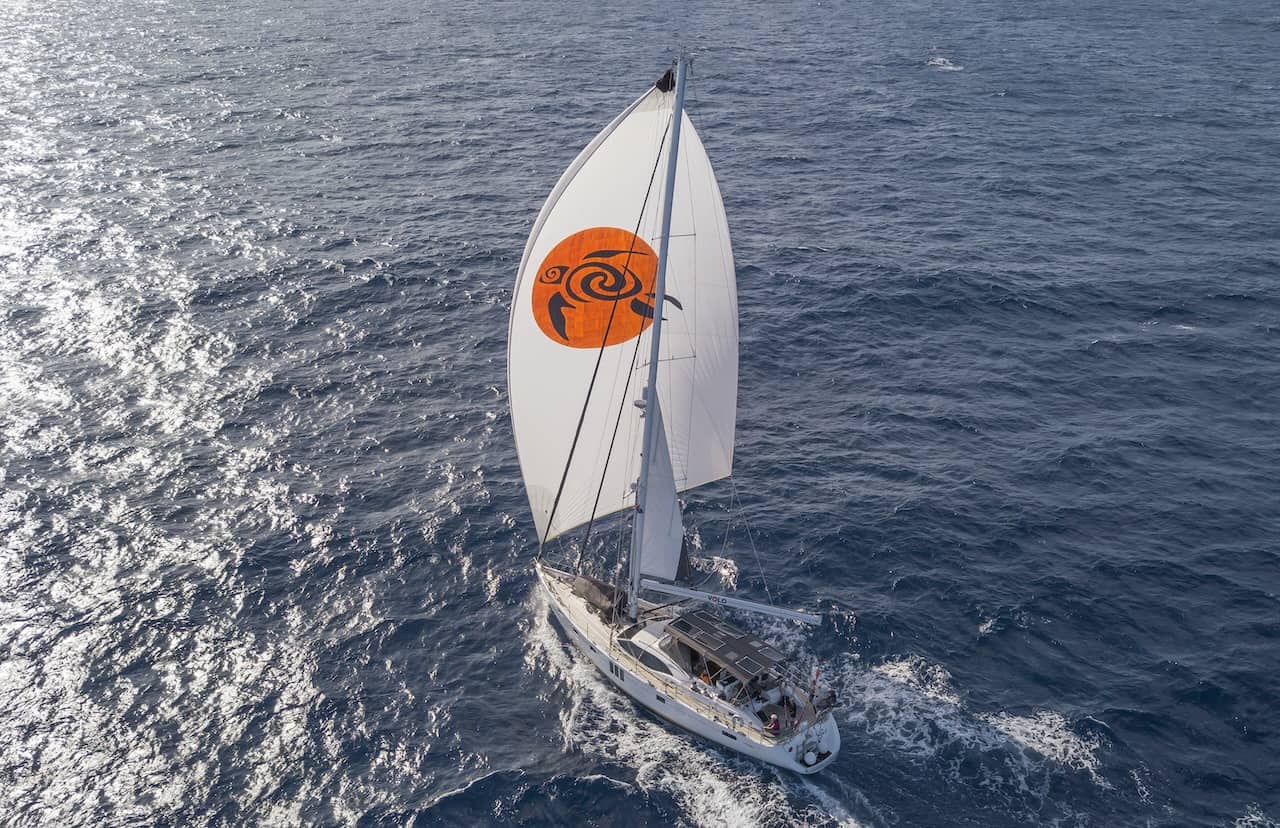
This Oyster 625 is a recent model long-range cruiser listed by Berthon.
Burnham: I like your notion of being the guide on a journey of discovery. It's because a lot of us don't know exactly what we want when we go to buy, although we sure think we know!
Grant: It may be that you'll come back around to the same boat. I remember years ago, Mitch Neff of Sparkman & Stephens was here with a client to buy a Swan 65 that we had for sale. I was chatting to the client, and he said, “I wouldn't go anywhere without Mitch, he's my sherpa.” It's that, isn't it? “He's my sherpa.”
Burnham: So that's one advantage of having many years of experience. How many new brokers are you bringing in?
Grant: We think it takes five years to make a broker. So we're always bringing people on. And of course, because we've been working together for quite some time, it's really important that we also find people that are going to be part of the team.
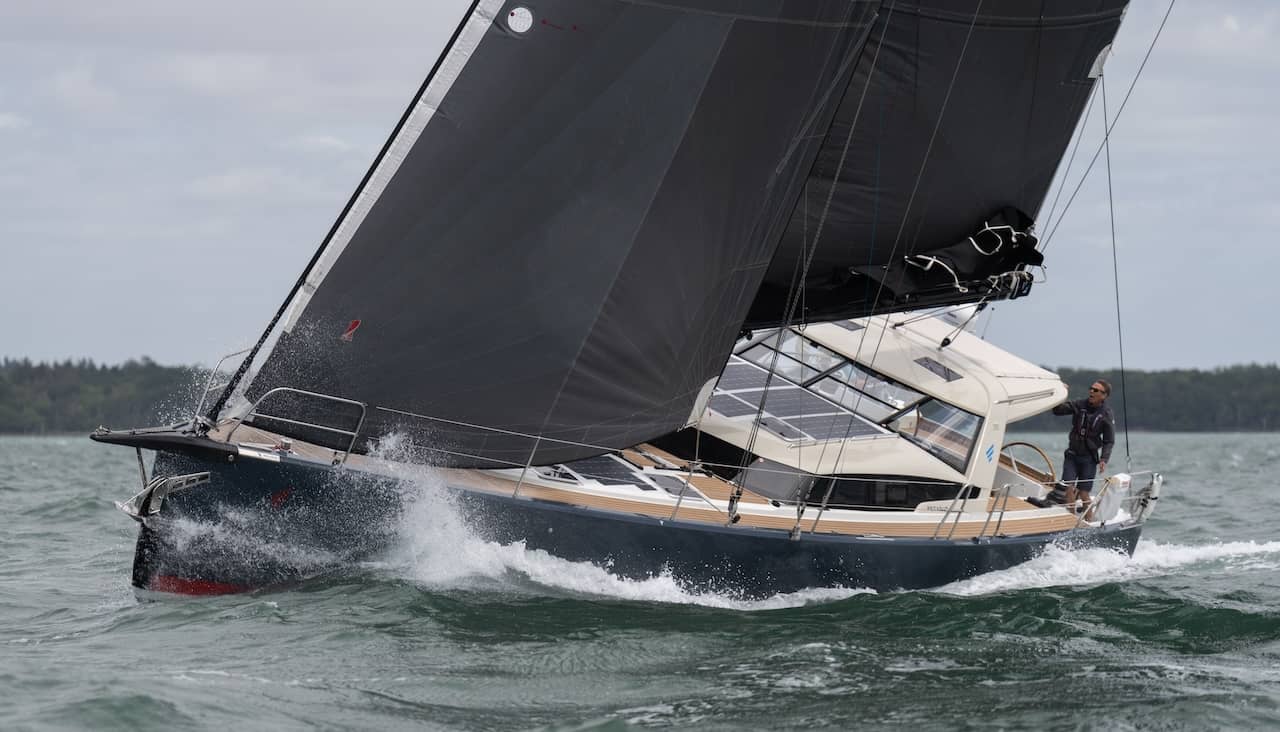
Pegasus Yachts is an exciting new light displacement brand built in Slovenia, represented by Berthon. This is a 50-foot model.
Burnham: When you take some time off, where would you like to go on a boat?
Grant: Chile. I’ve always wanted to go to Chile in a Pacific explorer yacht or sailing yacht with capability. It doesn't matter which. Seventy-one percent of the earth's surface is covered in water, and I relish the opportunity to use it to see extraordinary things.
For more on VAT and other tax matters referenced in this interview, contact Berthon International. You can also read Importing Used Boats: Taxes, VAT and Everything You Need to Know

